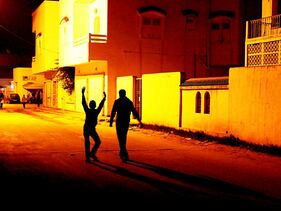 I think we all know, intuitively at least, that being hardened against our own feelings has a major impact on our life. It could be that we believe we can achieve more if our feelings don't get in the way—and I wouldn't disagree with that. But then achievement is our goal—not living well. If engaging life in order to live with our hearts open is important to us, we also intuitively know we are taking a risk. Some of the time, living this way will involve pain and disappointment. And the courage and hope to carry on might be a challenge. But when we consider the alternative and the long run of life ahead of us, living in an emotional desert seems like a travesty. I like the wisdom of Dr. Gordon Neufeld who says we can't reach our full potential without the gift of "feelingfulness." If we cut short our feelings, we cut down our aptitude for living well. And you don't need to be a genius to see—a life without feelings is just not we all dreamed of as a child. Not worthy of "us"--it is not a place that humans yearn for. When we pay attention to our deepest dreams and longings, they will take us to a place where we love and are loved well. And we need our feelings, our feelingfulness, for that. But where do you start if you have fallen into habits of ignoring emotions because they were too big to face, too risky for their vulnerable aspects? Or if you got into the habit of filling your life with "doings"...but now you feel called to some growth in "being"? —starting with being with yourself. We need our feelings to come out from behind walls we put up to help us cope, many of us. Those walls are usually a little hard—sturdy, strong, protective. We put them there to shield ourselves in times when we didn't feel safe. Our feelings (emotions) were safer—for a while. But now it is time to engage with our deeper, inner self. Time to find our "soft" feelings, which have been carefully guarded behind those walls. Here is how I use "soft"--SOFT—as an acronym. Each stage that I describe here is more complex than this. But let's start today with a basic summary. What does each letter in SOFT represent and how can we use this to reach inside and become more aware of our inner world. S-Sensations. (Somatic emotion if you are familiar with that term already.) Our emotions spring from our preverbal brain and they activate our whole body, not just our mind. The easiest ones to identify are often those that come from our alarm instincts—our fight, flight, freeze responses when there is danger to consider. But this is also true for our emotional responses to other instinctual things, such as frustration or our inner longing to belong. (Like I said, too much for this summary.) With this word, "sensations," you want to start to explore your emotions by paying attention to where the messages got stored in your body. Start by being aware that there are things that make you anxious or frustrated (or both) and look for the way your body signals this to you. Is there tension or turmoil in your upper body—shoulders, throat, neck? How about in your inner organs—does your heart race or your stomach churn? Or do you feel like running away—is there some message in your legs? These sensations come usually quite quickly and throw off your "thinking brain"—so you don't stop and say "hey, I suddenly feel anxious—why do I have this urge to run...or fight...or like I am frozen?" Literally, you may feel like throwing something—your arm muscles will be primed and ready to protect you by throwing a punch or a rock. Listen to these sensations, they are signalling to you that an emotion has been activated. O—Outcome or Outburst. If you are already good at processing emotion, or if you have a less sensitive brain, you might skip this one—but for those of us who struggle with big emotions, there is some kind of action that we know helps us "blow off steam"—get rid of the emotional sensations. It works for a while but in the long-run we want something more meaningful, more satisfying. As I mentioned, throwing something feels like a good idea for me—when I am anxious and frustrated in combination, I throw stuff. I often also feel like throwing up if I really pay attention to what my stomach is feeling. At those times, I often yell at someone. Both of these might help release the pressure of that feeling but don't actually resolve anything. There is another option. We can listen to our sensations and note what they are telling us or prompting in our body and we can stop and search for a name for what is going on. Yes, this is the next letter in SOFT. F—Feelings. Feelings are a more refined version of our emotions. They are the conscious version, the named rendering of the raw "reactive" part we started with. In this version, where we name our emotions and call them a feeling, we start to have a relationship with our own self. We begin the journey toward our conscious awareness of how we respond and we also begin our journey toward processing those emotions, making choices that we are more satisfied with. This is a journey that will take years to explore because feelings are not simple. But starting with a basic name—sadness, frustration, fear, isolation, worthlessness—starting here will help. Once you are more familiar with more words for your feelings you will get better at this. All this reflection is part of our cognitive work—our thinking brain. And you guessed it, we have come to the SOFT "T". Maybe I should be a bit quirky and let it be SOFTT, because there are two parts to the T. But I don't like the look of SOFTT. So here is T in two parts. T—Thoughts. The easier part of this is to identify what you tend to think of yourself when you consider the feelings you have. (See how you have stopped the raw emotion and are now reflecting on the feeling? This is a good thing!) Do you think something like "I'm a loser." or "I did it again. I hate that"? Do your feelings and emotions generate a negative thought about yourself? Take time to consider where your thoughts have been taking you, because most of us do this, usually without realizing it. It isn't that hard to consider what you would like someone to say to you or what you would say to a friend in this situation. Come up with a few (or even just one) simple statements that you would like to "hear"—even from yourself. Make it your business to change what you say to yourself when you have a chance to consider your emotional, inner landscape. Say things like "You matter." or "I am worthy." Experiment and find the most helpful ways to talk to yourself. The second part of the "T" is more complex. It has to do with allowing yourself to fully experience two differing thoughts at the same time. You can allow yourself the freedom to be mad as a nutty hatter at something when you know how this works. And at the same time, you tell yourself "On the other hand"....and you bring those two thoughts together in something called "tempering"—the original meaning of "temper"—to put two metals together to make them stronger. Temper your thoughts about your feelings. "On the one hand I am really angry at my boss for putting me in my place in that meeting and telling me to stop pushing for human rights. That makes me just mad! On the other hand, he has the power to fire me so I need to find ways to speak respectfully—modelling the kind of respect I want from him—so that I can move forward with the agenda I feel is clearly needed to improve the morale at work. I can do this—it just might take a little longer." Do you hear how I'm speaking to myself in this, giving a generous space for the anger but not leaving myself to the single perspective. The "other hand"—the second perspective is what gives me the reflective power for self-control. It also gives me the values I live by—respect and justice. It may even give me compassion and empathy—if I consider other thoughts on my boss and what he may be exhibiting in his behaviour. I may even come to see that I challenged him too openly, too hard, went after something with so much force that he reacted....it is a whole different way of thinking about what's going on. The one hand is all about space for me—my feelings, my reactions. The other hand is all about space for another perspective. This last piece on "tempering" comes from the work of Dr. Gordon Neufeld who calls this the integrative process and says it is one of three things that creates emotional maturity as we develop. There is so much more that could be said here. I've already taken too long to say all this. So let me close with this. This last T (tempering), for me, was a game changer. When I allowed myself the "first hand" and acknowledged that I would benefit from a generous space for those reactions and big emotions and feelings, I took leaps forward in my inner world. At first my "second hand" was simply that I was an adult, but it didn't take long to find and develop other things to put into the second hand. And there is nothing substandard about being in that second hand—that is where our values live. Because of that, the two work together for a much more fulfilling life. I hope you find some game-changers in this for you, too. Watch for more about SOFT in coming blogs. This is just the beginning!
0 Comments
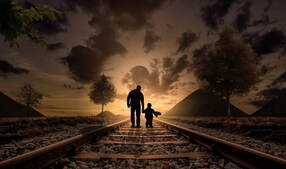 There's been a rumour that anxiety has become an epidemic—that so many people are "having it"—it's out of control. Which is kind of helpful and kind of not. The idea of anything being out of control is not helpful to anyone battling anxiety. Anxiety, the actual emotion of alarm, is not an illness all by itself. It is a normal, natural, and even useful emotion. It has a function: to keep us alive...and safe. Let's say you are walking on a dark night and the road is rough. You start to feel a little anxious. That's exactly what you should be feeling, isn't it? You might fall into a hole and if no one hears you go down, you'll be rather stuck there. So your alarm system alerts you: there is a possibility of danger here, be cautious, step with care. Alarm...stress...a feeling of anxiety: all there to tell you there is imminent danger. Of course, if you are walking on a familiar road with pavement that you know is clean and solid, the anxiety should dissipate when you remind yourself this is a safe place. The dark and the unfamiliar often trigger alarm. But as you think it through, you calm yourself--the anxiety has done its job and now it is done. And you are in charge of your thoughts. But if anxiety has started to take over your life and plague you rather than serve to keep you safe, you are probably battling with a feeling of being overwhelmed. Too much anxiety and the problem of not being able to turn off the anxious thoughts—well, that is not a healthy, helpful place to be. What's worse, anxiety has a terrible feature of being cyclical. If you are in alarm—sensing danger—and you realize you may not be in control of your emotions, you may get even more anxious! When I am tired and stressed (maybe worried about a work problem), sometimes my eye twitches. The first time it did that I started to worry about why it was twitching—would this go on for the rest of my life? How could I stop it? My twitch, caused by anxiety (together with tiredness) made me more anxious! That's exactly how anxiety behaves—it makes us more anxious because we are anxious. Think about that for a minute—it doesn't make sense but it is so hard to stop. There are potentially dozens of things you can do to help yourself take back the reins if anxious feelings and thoughts have galloped away with your life. But even a long list of "to-do's" might make your "problem" seem bigger. Talking to a professional to gain perspective or insight may be the obvious best choice. But that might also make you a lot more anxious. Talking to strangers about personal issues is...yes, alarming. You see how the cycle works, right? So let's start with two small things that you can do that won't take up time, energy or resources that you may not have. And I'm not going to tell you to try mindfulness, even though it may help. Mindfulness takes quite a bit of time and effort. You could certainly aim for that and it should help—but take that step later, because these first two are much easier. First, call a friend who has a voice that makes you feel safe. A soft voice and an inviting "posture"—not a real posture, but something about them that says "you matter to me." And just talk and listen—listen to the sound of their voice and carry it into your own breathing pattern. Listen, and as you do, imagine you are breathing air that has that calm quality to it. And imagine holding the calm inside your lungs for a couple of seconds before you let it go. Why is this first on the list? Because when we were tiny helpless humans our brains were wired to get our calm from the safe humans who came to care for us every time we expressed alarm. We are not actually wired to learn to calm ourselves or create our own safety—it should be a matter of priority that this is offered to us in our first few years of life. But for some of us that was not the case and we have to go back to the foundations and start again. So if that is your story, don't feel bad about your anxiety issues and don't waste time looking for who to blame—they probably had no idea they were failing you. But do this simple thing. Pick up the phone, listen to your friend, ask to get together with them, and as you listen, breathe in the soothing tones of their calming voice. Certain people just have that quality and it is something worth ingesting. And my second suggestion? Just as easy and even possible to do at the same time as the first—get out for a walk in nature. Even if it is the coldest day in winter and you can only stand ten seconds outside—get yourself out to where you can feel the air on your skin, listen for some sounds of nature (birds, leaves moving), smell the air—or don't if it is polluted, but try to get somewhere with fresh air. And move, walk a little. And take a friend to join you—life is better together. When I said the sound of a calming voice was intended to help create calm in the brains of human infants, it is all five senses that connect a baby to what is soothing. Six senses, actually, with motion (the sixth one) having significant impact on the nervous system. So go for a brief walk, with the intention to look around at the natural world, listen, breathe, feel the air or sunshine on your skin. And if you can't take a calming friend with you, remember someone who made your insides feel good in a deep and stable way...and imagine they are walking beside you, telling you that you matter. And just like that, you've started to take back your thoughts and feelings and you're letting anxiety know that it has a place in your life, but that you are in charge. *If you know you need to see a therapist, make sure you take the energy you get from your calming walk to book an appointment—in person or online (zoom), choosing whichever is less stressful for you. This advice in no way replaces talking to a therapist when you need one. (Check out my video "Creating Calm" to get more insights on our early foundations of inner calm). https://www.ellenjanzen.com/the-power-of-instincts-and-emotion.html 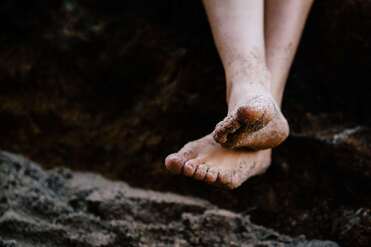 Love grows in some pretty ugly places. In the mud and clay and even the sand in some deserts, you will find seeds sprouting and growing. Even in places where there is almost no other beauty, seeds will grow. Give them warmth and water and a little attention and they may even flourish. We sometimes forget that the same is true in our lives. We think love always grows in beauty—in the fine soil of a fertilized garden, in the tidy rows that are arranged, tended, and pruned there. But no, life is messy and humans are predictably broken. Only a few are not messy at least every once in a while, and they are probably just not aware of how muddled up they can be... But that isn't even the point of today's thoughts. Today my focus is stronger, more concentrated than the idea that love grows in messy, mucky places. Sometimes the BEST growth takes place in those places. Sometimes love grows BECAUSE things are not great. Sometimes we have to stop and reassess and decide that love is worth it. And that is when it grows best—when we intentionally give it the warmth and nourishment from deliberate effort. People get into trouble. Kids, teenagers, adults...we all mess up. When someone loves us in our mess, we know it. If in the mess, in the disappointment, in the misunderstandings, we choose to say—even though this is not what I thought it would be or hoped for, I choose to love you. And if in this moment I can clearly convey that you matter to me—just you, not your achievement or the happiness you give me or the life we have dreamed of creating together. Not all that. But you. Just you, you matter. If in a moment of a muddy, messy, rainstorm in a garden that is begging to be weeded—if I can say, "Yes, you matter to me." Then yes, this is where love is growing in our lives.  Love grows in the opening spaces of Spring! Yes, of course it does—after a winter of being unseen, at rest, in quiet and waiting...anything and everything that will grow comes alive. But did you know that some leaves that look dead in winter, that loose all their moisture and lie flat to the ground, are actually dormant but not dead. Just like a caterpillar that has gone into a cocoon and slowly changes, these leaves adapt and lie under the snow—looking dead. You can strip them off the plant and there will be all new growth. But you can also watch and see them come back to green and be alive under the generous gift of the warming sun. Humans are not so different. You may have come across someone who seems unable to engage in the trust it takes to be truly a friend. But don't give up—love grows here, too. Here where trust has been broken and hurt has covered a tender shoot, there is hope. Go back to the beginning of how things were supposed to work and offer food, safety and "glad eyes"—eyes that say "you matter to me." Find things you both laugh at, and engage with shared humour. Find something you both love to drink (coffee) or eat—chocolate? And make those a habit of sharing time and slowly savouring the good flavours. Share favourite movies, a place you love to walk—pointing out how your senses give you delight with the song of the birds, or the shape of the trees. You get it, right? I'm just priming here, not giving you instructions... If there were absolutely no roots ever planted, this might be a long, hard, not-very-satisfying uphill journey. But if ever this soul had someone who cared, you are nurturing those brain pathways of trust. And love will live again. Love is the strongest force in the universe. We need to cultivate it, provide good conditions, be patient, watch for the season. Wherever you are, above all else: believe. Love grows here.  Grit is great. Defined by Angela Duckworth who has researched for over a decade, grit is passion plus perseverance. It is now one of the qualities colleges and universities commonly look for to predict who will "make it" through their program. Grit definitely has a place in our lives, where we need to know our purpose—why we are doing what we are doing. And we pair it with passion—so we are doing something that springs from within us, something we care about. Grit gets us through the inevitable obstacles that life throws in our path. But when grit takes over it often takes us in the wrong direction. Our determination without a sense of limits is not a good thing. Worse yet, or maybe not—maybe this is just me—but I think it is worse when someone else's determination (grit) takes over and pushes me down a path I don't want to be on, or steam rolls right over me when we are on the same path. Has that ever happened to you? Someone with too much passion, purpose and even power (a boss, a leader, a decision maker in your life)—someone "takes over" and although you may try to speak out about this, your words are not loud enough or strong enough to match their whirlwind of good intention. Many people with too much grit have arrived there with a lot of "best intentions." One thing that helps temper their path is a voice that is strong enough to call them to attention. But when that fails...and it does...people get hurt. If you find yourself *here*—if something inside you is saying "yes, that's me" (might be now, might have been 6 months or 6 years ago)— If this is your "yes", then there is bad news and good news for you. You may feel like you were left with no options. Nowhere to go, no one to listen, no energy for a further fight. But you have one option and it may sound like bad news, but it is in fact very good news. Your option is sadness. Grief, sorrow, sadness and tears. If you can be safe enough with yourself to actually cry about what you lost—what in your soul got crushed under another persons' load of grit—that sorrow, those tears, are a gift. Tears are not a last resort, although we often treat them that way. Tears are not something to avoid at all costs—even if that has been your habit. Tears are nature's answer to the horrible things that inevitably happen and they actually have purpose and design. Tears wash through our brains like a cleansing potion—they remove the toxic waste of the adrenaline and cortisol that came with a stressful event. And they clear the way for new pathways to emerge. If you have been stuck in the ditches in the aftermath of a grit storm, you can begin your move out of the muck with a good bath of tears. Watch a sad movie, read a sad book, listen to a song that makes you cry— anything to get you in touch with sadness. Begin your own journey by being kind enough to yourself to acknowledge that what happened to you was not just or right—you know this because you certainly don't want it to happen to your friends or children. And be sad, truly sad that it happened to you. Give yourself time, maybe about six months, to feel the dark feelings of loss and pain. Don't look for the gains, let them come when they decide it is time. Don't rationalize or make yourself figure out how to make this worthwhile—those things will come to you naturally and in the right order if and when you are ready. And you will get up out of the ditch and leave the tears there as a salty pond of hope for someone else to find, when they too get hit by the grit truck with someone else's load of purpose/passion/perseverance. You, on the other hand, are becoming a more deeply and profoundly compassionate human. You have taken the time to consider loss and pain as worthy of kindness—and you will carry this gift and the eyes to see into another's struggle with hope wherever you go. But start here. Start with your yes. Start with yourself. 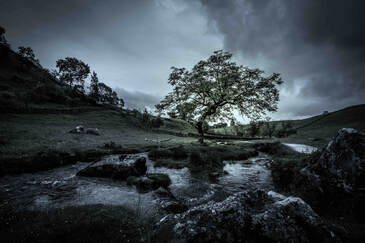 There has been lots of talk about "grit" in recent years. It has been studied by researchers, mainly led by Angela Duckworth who defines grit as passion plus perseverance. She admits that it has another characteristic that is a high correlative—purpose. The people I have known with lots of grit have most often been visibly fueled by a sense of purpose—so I like my own equation of grit. Passion + purpose = perseverance. And perseverance is a great quality to have. Until you crash. And then you are just stuck, usually. Stuck and trying to recuperate from a situation that took everything you could give it and then that little extra bit of reserved energy you summoned from deep within. And now you are flat, and not sure how to get back up out of the ditch. I say "you" but really I am referring to my own life. Times when I had the need to keep going, but the flags were all there that I should at least consider taking a break before I collapsed. Grit is what gets you through a tough semester at college. You dig a little deeper, get through something that seemed insurmountable, and then...Finals. Done for now. A break is waiting, and you can re-group. And grit grows within you. Yes, Duckworth's research shows that grit increases with age. If you have some, and you keep going, your grit will grow. But is grit the same as resilience? Researchers have also found that it is NOT the same. Resilience is what lets you dip down into your more vulnerable emotions (worthlessness, sadness, frustration, futility—to name a few). And finding yourself there, in the trenches of your dark side, you don't muscle on. You stop to consider that these dark shadows are part of your make-up. Part of you. And when you wrestle with those uncomfortable emotions and the feelings and thoughts that make you face your imperfections (which yes, we all have....and no, we don't all face them, take them on, and reflect on them)...when you stop there, you grow. You grow in a variety of ways—your growth may not resemble my growth, but you do grow. And that act of stopping, facing the cold mirror in the dark pond of who you are, of reflecting on what you see there and why you came this way...especially if you can take those reflections out and see the next level of how you are affecting life around you. All of that should, in fact, make you a whole lot more gentle with yourself. And if you are gentle with yourself, you will be more understanding of others. Offer them the silence they need if they are standing at the edge of their own dark pond. Hold onto their ankles, at times, if they are attempting something self destructive. And hold out the space they need to come to terms with how imperfect life and all of its human forms can be. Don't be hard on your self, your own self, if you are competent and purposeful and have pushed yourself hard in the direction of your dreams—and now seem to feel the crashing. Don't stop here as if it is a failure-- But let this be a ditch where you grow. Understand that telling yourself this is a new place for self-compassion, patience and reflection is a doorway to growth. Believe that good comes out of these very hard places. And let go of your need to win...or to perform...or to be admired. And let your journey to resilience (or toward more resilience) give you the inspiration, the PURPOSE, that you need to wrestle here with imperfection. Win, lose or draw. They all count in the growing garden of resilience. And once you have resilience, true capacity to engage the valleys of life's walk, you get a bit more grit to go with it. Or maybe an even better gift—the wisdom to know when to hang on and push through with sheer determination and when to quit and spend some time gazing into the dark waters of reflection. Waiting. Resting. Growing. 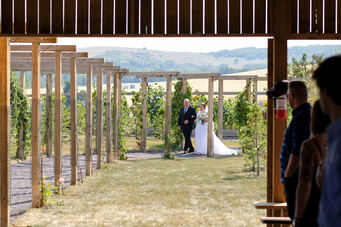 Today I make wedding cakes. Today I look toward the next generation and the good things in their lives. This weekend my son marries a girl who is so very much the match to his soul. I am proud and happy and filled with hope. Life moves in its circle of love and grace. The honesty of living with a grief that comes when that cycle is cut short is real. On Saturday, I will think about my mom and miss her. It will only be a fleeting thought as I share this day as a witness to my son's vows—the promise of a life spent together. But for that moment my mom's face will fill my thoughts—not with regret, but with awareness. I will wish for a moment that she could be there—that he could know her. And I will wonder for a moment what she would say to this new grand-daughter. Her presence in their lives will be missed—perhaps only by me. But certainly by me. I will notice and then I will move on into a day of celebration. But make no mistake. Her absence will be real to me. It is a part of how I live my life—with the awareness that every day is precious, that every child is a treasure, that every single celebration is a privilege, a gift. We gain our values from the shadows of our losses. Because we know that growing old and living all the seasons of life is not something to take for granted, we celebrate the good times with extra gratitude. Sometimes with a hidden dread that the seasons might be snatched from us. But generally, we celebrate with the vision that has created deep awareness. Life is precious. People are our treasures. Time is a wisp of opportunity—if we want to love our people well, we had better do it now. Today. We bend more often than we break—but usually bending feels like breaking.
We are designed, as humans, for resilience. We adapt and find a way through the hardest of things, but our capacity to bend is developed first in the little things. We face disappointments and futility with the normal course of each day. Coffee creamer has run out. It rains on a picnic. A friend can't make it to a fun meeting we were looking forward to. When we face those small-disappointment times, we can "power through" (and suck it up—not my favourite term) or we can pay attention and let our sadness come up through our feelings and thoughts and choices. When we pay attention to our sadness, we are learning to reel disappointment into a healthy place of first being sad, and then letting go of our hopes. Part of good mental health is the capacity for recognizing there are things we can change and things we can't change—and allowing ourselves to be sad about some of those things that are futile. But then the big losses hit us. Things that shake us to the core, sometimes leaving us knocked down for a week, or a year—or more. These are the losses that can leave us feeling like we are breaking. But probably we are bending—finding the resilience to get through the hardship. And it is just plain hard. Hard to feel anything. Hard to grieve, hard to let go, hard to hold onto hope. For me, it helps to know that sadness is the part of this journey that we should not avoid. Sadness takes a tender heart—it means we allow our vulnerabilities to come up inside of us. It feels like danger to our soul, but it is only dangerous if we don't have the refuge of safe relationships where we can freely grieve. Honest sadness paired with genuine compassion creates room for healing. If we can let ourselves bend under the weight of grief toward the sea of tears we harbour inside of us, we will not break. We may never fully "recover"—if we have lost someone we love, we cannot recover that person. We may never again grow in a standing-straight-and-tall position. But we will continue to grow. And somehow, part of the growth takes place in our capacity to live with intentional values—to show love and compassion to others in hard times, to give love freely to those who need it, to see opportunities for relationship as more valuable than anything else. There is a great deal of beauty even in the bent over tree that continues to reach for the light. Yesterday was sunny—we watered the sunflowers and sat in the sunshine pulling weeds. It was everything a summer day should be and we filled our five senses with the treasures of being outdoors. Together we laughed and played and sang songs of summer. Today is all different. There are grey clouds across the whole sky and although the rain has not fallen, it is no longer summer. The ash trees are their first shade of yellow. The poplar leaves are still green but a sudden frost may take them overnight any time. And the season has changed. For me this day marks the turning of seasons in a historical punch to my stomach. On this day, 47 years ago, I heard the words "Your mom has gone to be with God" and everything changed. The sunshine faded and although I spent the next day sitting looking over a tranquil lake there was no joy in the beauty of that scene. I was more fully alone than I had ever been in my life. This is the anniversary of the season of winter coming over my heart. It is an event that is not for celebrating. It is an un-celebration. And although I still find myself feeling unbearably alone so many times when I recall this day, there is a choice I have to make. I make the decision to tell someone that this day is hard. No one in my daily life knew my mom. She is a name and a set of narrated memories to my husband and kids. She is a myth of some kind and a mystery of many kinds—they only know a sliver of who she is and was, through my remembrances. Re-layered memories. And so I am tempted to keep this piece of my grief, the knowledge of my loss, inside myself. It feels a little bit safer to remember her and un-celebrate this day alone. It is a super-anniversary, an unusual one. She lived for 47 years and now she has been gone for 47—that feels significant to me. For no good reason, except that remembering her on this day is always both hard and important. But as I sit and remember these big moments of loss and the season of aloneness that came to grip my life for the next decade, I also know that I need to make the best choice I can for myself. I need to tell someone that today is this day. This day of un-celebration. I wish I could tell you that I have grieved enough to celebrate the brighter side. Celebrate that there was so much good, so much joy, so much delight that was lost when she left. I know that would be the healthy place to be. Celebrate what was so valuable.... that is no more. But I am not there. Here is where I am: I am doing well enough to tell just one person this one thing. "Today is the day my mom died." It feels like a risk. It feels like it might hurt more. It feels like this won't help. But it does. It helps to tell one person who has been there for the hardest of memories. And he says the thing that needs to be said because he has learned that being alone doesn't help a mosaic heart to be whole. He says, "I know you feel alone, but you aren't. I'm here." When the light of one life goes out, sometimes we need help to keep the tiny flicker of hope inside us from being snuffed out. I wish you this moment of courage. I trust you have a friend, a spouse, a sibling or a kind and caring "neighbour"...someone you can go to with your treasured, uncelebrated memories. Because we heal when we feel cared for. We heal when we are not alone. We find our way when someone else's light is enough to give us a flicker of hope. Someone out there cares about your loss. Let them know and let them be the light that shines on your darkest day. I love a grand mountain with moonlight on it. There is beauty in the soft light of the night. Everything is touched with a gentleness that makes the darkness a still place, a safe place. But sometimes the night is thick with darkness and we see nothing. Little ridges in the road can trip us up and pull us down. I've bruised my legs more than once when I've fallen—literally, not figuratively, walking in the dark. It is not fun. Yet darkness like this—thick darkness—is part of our lives. We hope it doesn't overcome us often. And it would be nice to stay home and not have to face this kind of darkness. Ever. But for some of us, darkness invades our most sacred space of "home"—the place where we need to feel safe. The place where we find rest and in that rest we are able to grow. When that happens, when the darkness crowds around us and makes it seem like our eyes are shut. When we see nothing and feel like the next step might be our last one. When we doubt beyond words that there is another side to the tunnel... When that happens, I hope there is someone in your life who can say to you "There is One who never lets go, will not let go of you. He is the creator of Life. And His hands are Love. They bears scars that are Love." And if you don't have that person, but you found me here today...Let me say it to you. "There are hands holding on to you, and they are Loving Hands." The Heart of the Creator is for you. I don't say these words lightly. I know that when you are truly brokenhearted, you cannot feel love around you. I hold these words with reverence, on your behalf, and I believe them for you. Until the darkness lifts—and then I know you will see that Love was there. Psalm 34:18 says, "The Lord is close to the brokenhearted and saves those who are crushed in spirit." |
Author/Elaine
I write on how humans develop and grow through challenges we face. I've divided this into three categories--Growing Love is about relationships and how we create conditions for growth despite the inevitable challenges. Cloudburst is about grief, specifically—which is a tricky topic. We need to keep growing but pushing is the opposite of helpful. And in Dancing on Hot Sand I talk about personal inner growth in hard places—spiritual growth, without sounding religious, I hope. Archives
April 2021
Categories
All
|
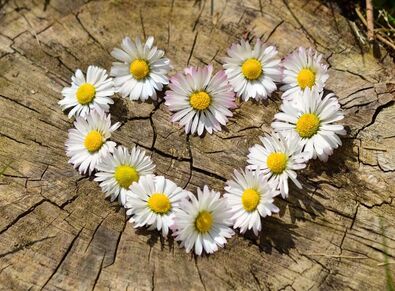
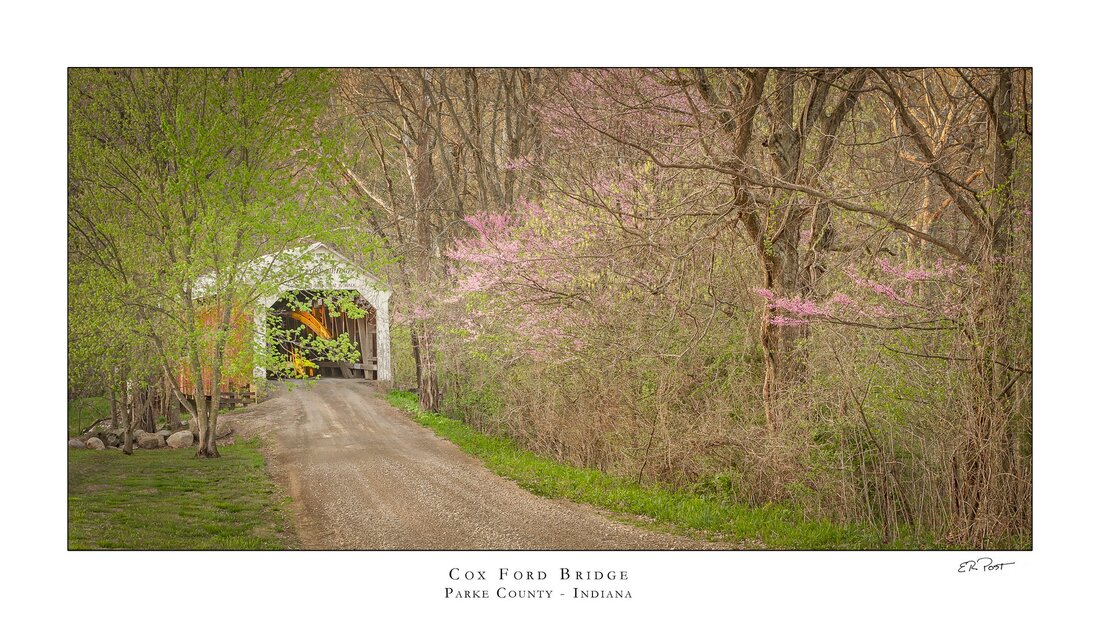
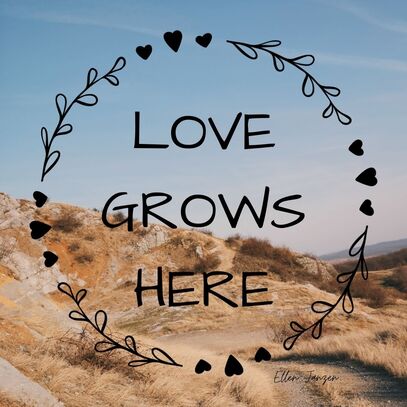
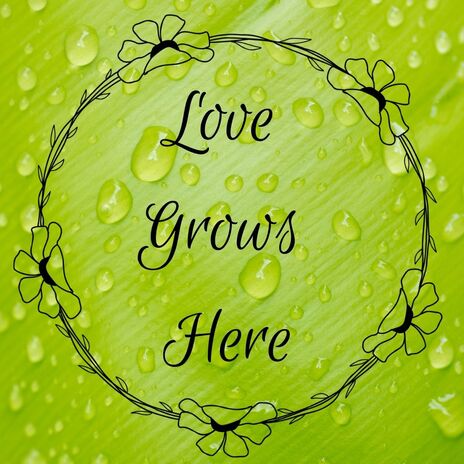

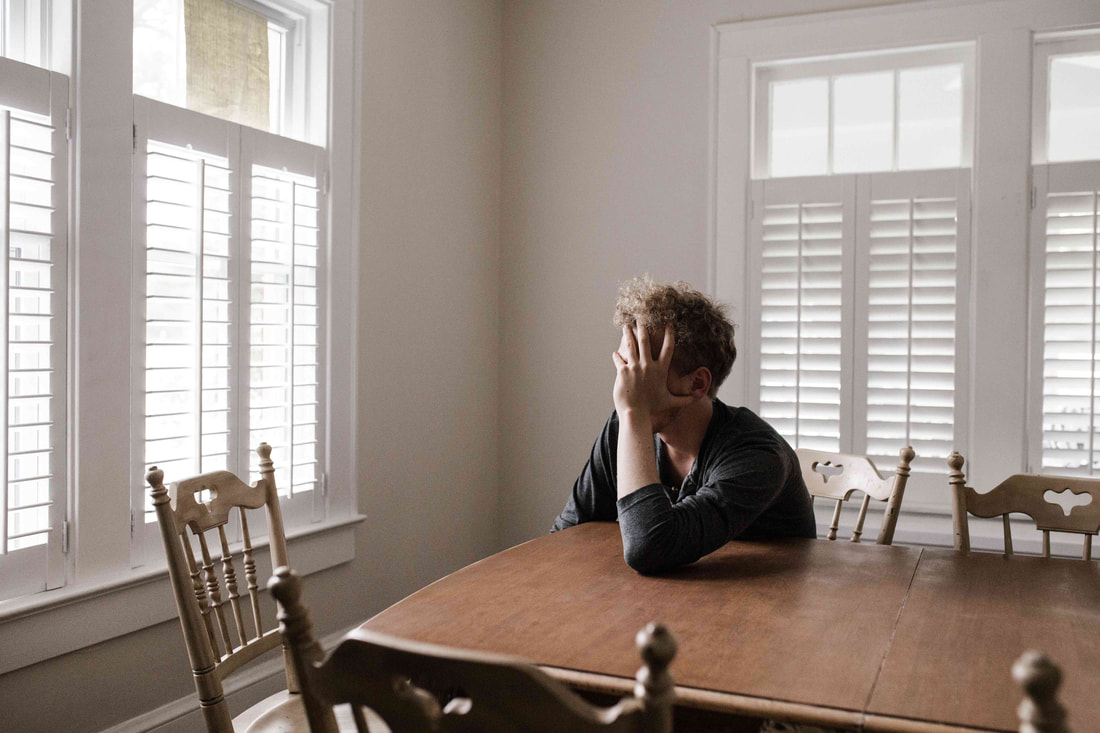



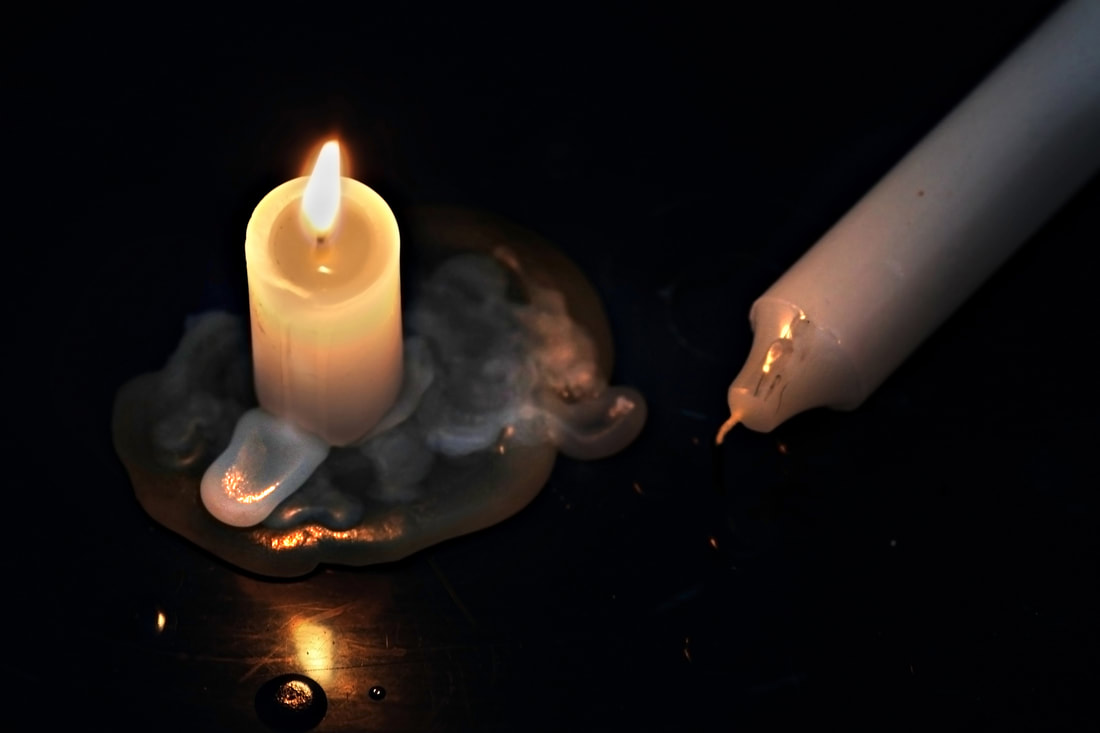

 RSS Feed
RSS Feed